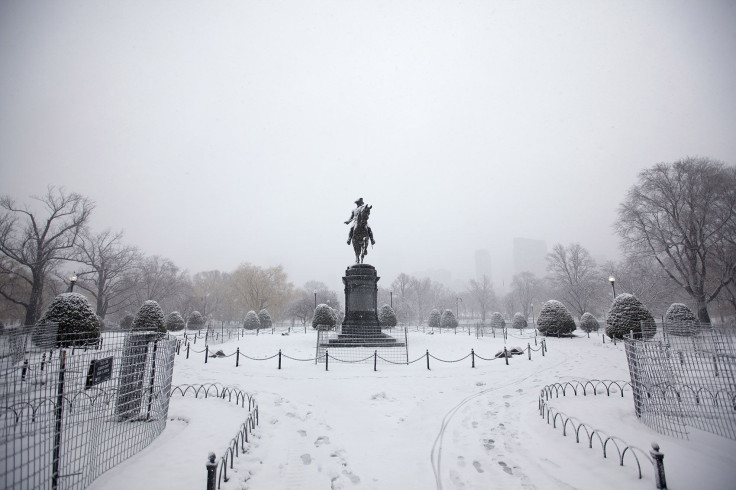
The U.S. Northeast and mid-Atlantic are preparing for a large winter storm this weekend, the first one of such magnitude in over a year, according to Bloomberg.
It is expected it will mainly bring rain to New York City and snow to its northern and eastern suburbs. Moreover, New Jersey, the Hudson Valley and parts of Connecticut can expect between two and six inches of snow, the outlet said. Upstate New York and interior New England could see even higher figures, with up to 10 inches of snow.
Overall, around 25 million people are under winter storm alerts from the mid-Atlantic to the Appalachians and into southern Maine, CNN said. The heaviest snowfall is expected from Saturday to Sunday.
The storm was already beginning on Friday with light rain in eastern Texas and Louisiana, as well as lighter snow in parts of the Plains and the Midwest, the outlet added. It will continue moving through the Southeast and into the mid-Atlantic.
The winter in the Northern Hemisphere started with milder temperatures than usual, with no snow year. In fact, an Axios report from this week shed light on the fact that ski areas in the U.S. and Canada have not seen any natural snow, when the season was already in full swing in the past.
As of Wednesday, snow cover in the Lower 48 states was at its lowest level since at least 2004, Axios said. While CBC news reported that in British Columbia resorts are also seeing below than average snow. "Whistler Blackcomb resort outside of Vancouver has just 57% of its 10-year average summit snow depth," the outlet said.
2023 was the hottest year in at least 174 years and recent months have been the hottest in over 125,000 years, according to figures reported by Vox. The conditions led to "deadly heat waves, disease outbreaks, floods, droughts, and record low ice levels around Antarctica."
The outlet also recalled that 2023 may be the first year in which annual temperatures have risen 1.5 degrees Celcius above the global average at the beginning of the industrial revolution, a threshold humanity has sought to avoid under the 2015 Paris Agreement.
"A single year rising past this level doesn't mean this target is toast, but if people keep heating up the planet, a year like 2023 will become one of the coolest we'll experience in the rest of our lives," Vox's article explained.
In this context, nearly 200 countries adopted at the COP28 a deal stating that the world will be "transitioning away from fossil fuels" in order to achieve net-zero emissions by 2050.
It was the first time in the 28-year history of the Conference of the Parties that all fossil fuels were mentioned in an accord.
© 2025 Latin Times. All rights reserved. Do not reproduce without permission.




